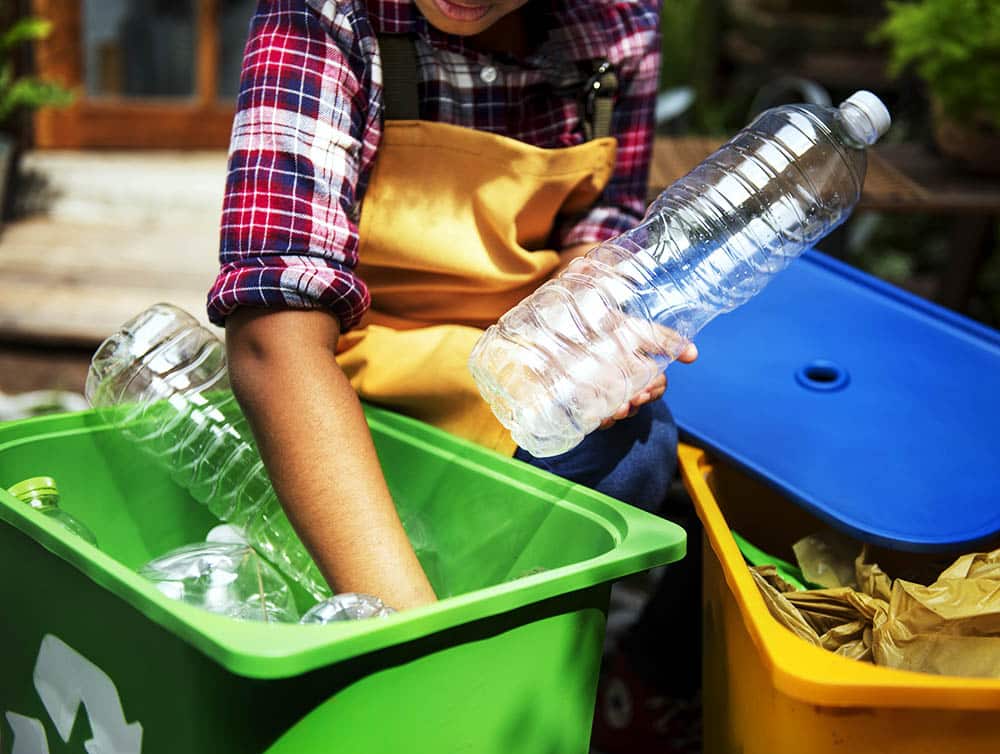Why Recycling is the Key to a Greener Future
As our planet faces a crucial turning point in the fight against climate change, it’s more important than ever that we take actionable steps towards preserving our environment. Every day, each one of us has the power to make a difference and help create a greener future. One of the most impactful actions we can take is to recycle. Here’s everything you need to know about why recycling is the key to a greener future.
The Importance of Recycling
Recycling is the process of converting waste into reusable materials, such as paper, plastic, glass, and metal. It’s an incredibly vital process that has a multitude of benefits for our planet. Here are just a few reasons why recycling is essential:
Reduces Landfill Waste
The majority of our waste ends up in landfills, where it takes years to break down and can release harmful chemicals into the environment. Recycling reduces the amount of waste sent to landfills, which reduces pollution and conserves valuable resources.
Conserves Natural Resources
Creating new products from raw materials requires a lot of energy and resources, such as water and fossil fuels. By recycling, we can conserve these resources and reduce the amount of energy needed to produce new products.
Reduces Greenhouse Gas Emissions
The production of new products from raw materials requires a significant amount of energy, which often comes from burning fossil fuels. This emits greenhouse gases into the atmosphere, contributing to climate change. By recycling, we can reduce the amount of energy needed to create new products, which in turn reduces greenhouse gas emissions.
Protects Wildlife
When waste is not disposed of properly, it can end up in the environment and harm wildlife. Animals can mistake plastic for food, resulting in injury or death. Recycling reduces the amount of waste in the environment, which protects wildlife and ecosystems.
How to Recycle
Recycling is a simple process that can be done in your home, workplace, or community. Here’s how to get started:
Find Your Local Recycling Program
Most communities have a local recycling program with specific guidelines on what materials they accept. Look up your local recycling program online or contact your local government to find out where to take your recyclables.
Know What Can be Recycled
Not all materials can be recycled, so it’s important to know what can and cannot be put in your recycling bin. Commonly recycled materials include paper, cardboard, plastic bottles and containers, glass bottles and jars, and metal cans. Make sure to read your local recycling program’s guidelines to ensure you’re recycling correctly.
Prepare Your Recyclables
To ensure your recyclables can be processed correctly, it’s important to prepare them properly. This may include rinsing out plastic containers and removing any non-recyclable materials from paper and cardboard.
Make Recycling a Habit
The most important step in recycling is making it a habit. Incorporate recycling into your daily routine by setting up a recycling bin in your home or office and making sure all recyclables are properly sorted.
Challenges and Solutions in Recycling
While recycling has numerous benefits, it’s not without its challenges. Here are a few challenges we face with recycling, and how we can work to overcome them:
Contamination
One of the biggest challenges in recycling is contamination, which occurs when non-recyclable materials are mixed in with recyclables. This can disrupt the recycling process and contaminate otherwise reusable materials. To combat contamination, it’s important to properly sort and prepare your recyclables.
Lack of Education
Many people are not educated on the importance of recycling, which can lead to a lack of participation. Educating individuals on the benefits of recycling and how to properly recycle can go a long way in increasing participation.
Infrastructure
In some areas, the lack of infrastructure for recycling can make it difficult to recycle. Governments and communities can work together to build and improve recycling infrastructure to make it easier for individuals to recycle.
How Businesses Can Help
Businesses have a vital role to play in recycling and creating a greener future. Here are a few ways businesses can help:
Reduce Waste
The first step businesses can take is to reduce waste in the first place. By minimizing packaging and using environmentally friendly products, businesses can reduce the amount of waste they produce.
Implement a Recycling Program
Businesses can implement a recycling program by providing recycling bins and educating employees on what materials can be recycled.
Partner with Suppliers
Businesses can work with their suppliers to source products made from recycled materials. This creates a demand for recycled materials and helps to promote a circular economy.
The Future of Recycling
The importance of recycling will only continue to grow as we face increasing environmental challenges. Here are a few ways we can work towards a sustainable future:
Invest in Recycling Infrastructure
As mentioned earlier, infrastructure plays a crucial role in recycling. Investment in recycling infrastructure will make it easier for individuals and businesses to recycle.
Promote a Circular Economy
A circular economy is a system in which resources are kept in use for as long as possible and waste is minimized. Promoting a circular economy can help to reduce the amount of waste we produce and conserve valuable resources.
Work Together
Creating a greener future will require collective action from governments, businesses, and individuals. By working together, we can make a significant impact and create a sustainable future for generations to come.
Summary
Recycling is an essential process that has numerous benefits for our planet, including reducing landfill waste, conserving natural resources, and protecting wildlife. By following simple steps like properly sorting and preparing recyclables, we can make a significant impact. While there are challenges to recycling, businesses and governments can work together to overcome them and make recycling more accessible. Ultimately, creating a sustainable future will require collaboration and collective action from everyone.
